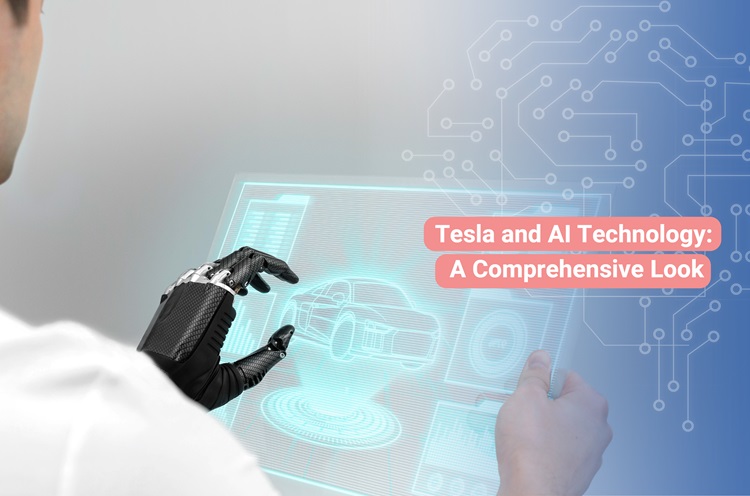We are living in an era of unprecedented technological advancement. Artificial intelligence (AI) is one of the most exciting and rapidly developing fields of technology. Tesla, the world’s leading electric vehicle manufacturer, has been at the forefront of this revolution and has been utilizing AI technology in its vehicles for years. This article takes a comprehensive look at Tesla’s use of AI technology and its implications for the future of the automotive industry.
What is AI Technology?
AI technology is a form of computer science which involves the development of intelligent machines that can think, learn, and act like humans. It is based on the concept of self-learning algorithms that can be used to solve problems and make decisions. AI technology has already had a profound impact on many industries, including healthcare, finance, and transportation.
How Has Tesla Used AI Technology?
Tesla has been using AI technology in its vehicles for years. The company has developed a suite of AI-powered features that are designed to make driving safer and more efficient. These features include Autopilot, which is an advanced driver-assistance system that can autonomously control the vehicle’s speed and steering. Tesla also offers a suite of semi-autonomous features such as Summon, which can be used to remotely park the vehicle, and Autopark, which can autonomously park the vehicle in a designated spot.
The Benefits of AI Technology in Automotive
AI technology has the potential to revolutionize the automotive industry and provide a range of benefits to drivers. One of the most significant benefits is improved safety. AI-powered features such as Autopilot can help reduce the number of accidents on the road by providing drivers with additional assistance. AI technology can also help reduce traffic congestion by optimizing routes and improving traffic flow.
The Challenges of AI Technology in Automotive
Although AI technology has the potential to revolutionize the automotive industry, there are also some potential challenges that need to be addressed. One of the biggest challenges is the need to ensure that AI-powered features are safe and reliable. This requires extensive testing and validation to ensure that the technology is functioning as intended. Additionally, there are ethical and legal considerations that need to be taken into account when developing and deploying AI technology in vehicles.
Conclusion
Tesla has been at the forefront of the AI revolution and has been using AI technology in its vehicles for years. AI technology has the potential to revolutionize the automotive industry and provide a range of benefits to drivers. However, there are also some potential challenges that need to be addressed in order to ensure that AI-powered features are safe and reliable. Ultimately, the future of AI technology in automotive is an exciting one and it will be interesting to see how it continues to evolve in the years to come.
